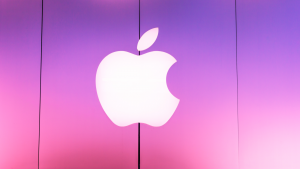The Dow Jones Industrial Average, or Dow 30, is meant to be a collection of prestigious blue-chip stocks that represent the U.S. economy well. However, not every company on the Dow is a good investment and is instead one of several doomed Dow stocks. Many stocks have a record of underperformance. So much so that analysts and market observers openly question the composition of the Dow 30 and have called for a shake-up of the index.
While the Dow is currently at a record high, it has a history of trailing the other two main U.S. indices, the benchmark S&P 500 and the technology-laden Nasdaq. Even in 2023, when it reached a record high, the Dow rose 13.70% on the year compared to a 23.79% return from the S&P 500 and a 42.13% return from the Nasdaq. Here are three doomed Dow stocks to dump before they dive: February 2024.
Intel (INTC)

Intel (NASDAQ:INTC) has just announced that it is delaying the construction of a new $20 billion microchip and semiconductor manufacturing plant in Ohio. The plant is expected to help Intel manufacture microchips and semiconductors that other companies design and eventually rivaling Taiwan Semiconductor Manufacturing (NYSE:TSM). Intel planned to have the Ohio plant up and running in 2025. Construction was delayed to late 2026.
The announced delay of the Ohio plant came a week after Intel reported financial results that included disappointing guidance. The outlook was so bad that it sent INTC stock down 11% in one trading day. While profits and sales for the fourth quarter of 2023 beat Wall Street expectations, Intel forecast earnings of 13 cents on $12.20 billion to $13.20 billion in revenue for the current first quarter 2024. Analysts had been looking for earnings of 33 cents a share on $14.15 billion of revenue.
Intel said that its core businesses of personal computer and server chips would be at the low end of the company’s range in the current quarter. INTC stock is now down 10% on the year and sinking.
Chevron (CVX)

In its latest earnings report, U.S. oil giant Chevron (NYSE:CVX) seemed to mask some ugly numbers by announcing that it’s raising its quarterly dividend payment to shareholders by 8%. The dividend increase appeared to generate a lot of headlines, as did news that Chevron returned a record $23.60 billion to its shareholders in 2023 by paying out $11.30 billion in dividends and buying back $14.90 billion of its own stock. However, the company’s actual financial results showed some troubling data.
Despite the record payout, Chevron’s profit declined 40% to $21.30 billion last year from $35.50 billion in 2022 when crude oil prices were above $100 a barrel. While profits in the fourth and final quarter of 2023 beat expectations, it was largely due to cost-cutting. Revenue in Q4 2023 came in at $47.18 billion, below the $51.62 billion expected on Wall Street. Profits from the company’s refining operations dropped 35% year-over-year to $1.15 billion in Q4.
In its earnings print, Chevron said it continues to struggle with volatile crude oil prices, which are likely to get more volatile as tensions in the Middle East worsen and China’s economic downturn deepens. Chevron is also acquiring rival Hess (NYSE:HES) for $53 billion, which is a deal many analysts are questioning. CVX stock has declined 10% in the last year.
Apple (AAPL)

Apple (NASDAQ:AAPL) has a perception problem, hurting the company’s share price. Apple’s latest earnings print was actually better-than-expected, with profits and sales topping Wall Street forecasts. iPhone sales revenue totaled $69.70 billion versus the expected $67.82 billion. Apple’s overall revenue rose 2% year-over-year in Q4 2023, breaking a streak of four consecutive quarters with annual revenue declines. In most respects, the print was a success.
However, AAPL stock declined after the earnings were public because analysts and investors focused on the company’s reported 13% decline in iPhone sales in China during Q4. China remains one of Apple’s most important markets, accounting for 20% of its iPhone sales worldwide. Any slowdown in China is a black eye for Apple. While the sales drop in China is due to an economic slowdown, domestic competition, and politics, it nevertheless hurts Apple’s stock.
AAPL stock is flat on the year but has trailed the performance of other mega-cap technology stocks over the past year. It also recently lost the crown as the world’s most valuable publicly traded company to rival Microsoft (NASDAQ:MSFT). And it has had multiple analyst downgrades since the start of the year. Right or wrong, the impression is that Apple’s growth is slowing.
On the date of publication, Joel Baglole held long positions in APPL and MSFT. The opinions expressed in this article are those of the writer, subject to the InvestorPlace.com Publishing Guidelines.
